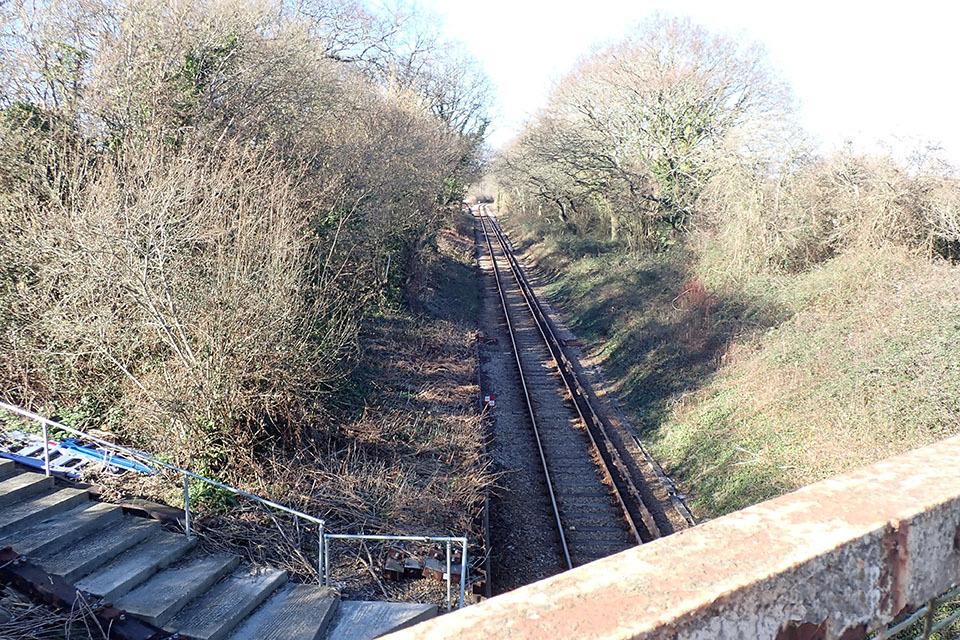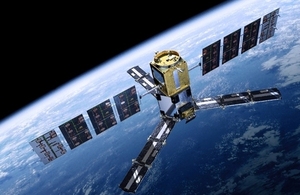Summary
At around 0150 on Wednesday 22 November 2023, a road-rail vehicle, travelling in a work site, collided with a hand trolley being used by a work group on the Isle of Wight’s Island Line. The road-rail vehicle was being used to clear vegetation and was travelling between its work locations when the collision occurred.
The road-rail vehicle was approaching the work group, who were repairing the track, on a descending gradient and was unable to stop before their site of work. When members of the work group realised that the road-rail vehicle was not stopping, they removed tools and equipment from the trolley and lifted it off the track. However, once removed, the trolley was inadvertently left too close to the track and remained foul of the road-rail vehicle’s path. The road-rail vehicle then collided with the hand trolley.
As a result of the collision, the trolley struck two members of the track repair work group on the legs, pushing them into bushes beside the track. Both received minor injuries, attended hospital independently later that day and were then discharged. The collision was caused because the controller of site safety responsible for the track work group had not been informed of the road-rail vehicle’s movement before it approached, and because the road-rail vehicle was unable to stop in the expected distance once the machine operator realised the work group was ahead.
Two underlying factors were that South Western Railway, the infrastructure manager for the track on the Island Line, did not have an effective process for planning and managing the risk of on-track plant movements, or for managing low adhesion risk for maintenance activities. A third underlying factor was that South Western Railway’s assurance processes had not identified informal working arrangements in possessions.
Since the accident, South Western Railway has updated its risk assessment for machine movements and introduced new control measures to specifically manage the risks of conflicting sites of work within work sites and possessions. It has also addressed the deficiencies found within its assurance process for monitoring how possessions are managed.
Recommendations
As a result of the investigation, RAIB has made three recommendations, all addressed to South Western Railway. The first is to review how it manages safety during infrastructure work on the Island Line. The second is to review its assurance processes and the third is to provide its infrastructure maintenance staff and contractors with accurate information about its infrastructure.
Additionally, three learning points have been identified. The first reinforces the importance of transport undertakings and on-track plant operators applying industry codes of practice in the event of an accident or incident involving on-track plant. The second concerns the importance of promptly reporting notifiable accidents to RAIB, and the third the importance of well-established process and procedure for dealing with post‑accident or incident evidence collection and testing.
Notes to editors
-
The sole purpose of RAIB investigations is to prevent future accidents and incidents and improve railway safety. RAIB does not establish blame, liability or carry out prosecutions.
-
RAIB operates, as far as possible, in an open and transparent manner. While our investigations are completely independent of the railway industry, we do maintain close liaison with railway companies and if we discover matters that may affect the safety of the railway, we make sure that information about them is circulated to the right people as soon as possible, and certainly long before publication of our final report.
-
For media enquiries, please call 01932 440015.








